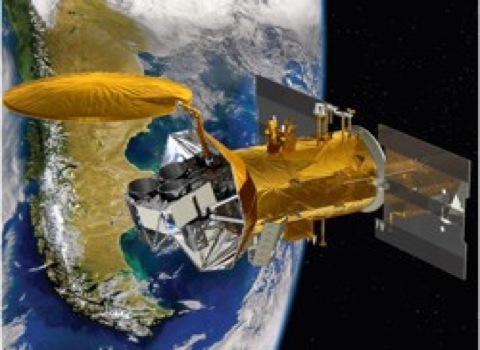Key words :
climate change,
oceans
,glaciers
,global warming news
,climate change deniers
,antarctic
,arctic
NASA's Climate Monitoring Plans
18 Jun, 2009 11:25 pm
The fateful crash landing earlier this year of NASA's Orbiting Carbon Observatory meant an abrupt end to the project intended to provide the very first global measurements of atmospheric carbon dioxide. The space-based OCO's measurements would have provided exact readings of the human component and the natural causes of carbon emissions in the atmosphere.
 |
The Aquarius data might lead to a breakthrough in the knowledge of the role the oceans play in global warming. Scientists have speculated for the past decades that man-made climate change contributes to the increased saltiness of the oceans. The North Atlantic Ocean especially affected by increased levels of salinity and this in turn affects the circulation of ocean currents. The redistribution of heat within the waters (a huge factor in climate temperatures) and the overall water cycle is affected by these salinity levels.
"NASA plans to [ ..] address key scientific questions regarding how Earth's atmosphere, oceans and land work together to shape our weather, climate and environment," said Dr. Ghassem Asrar, NASA's associate administrator for Earth Science in an interview with Science Daily which detailed the specifics of the Aquarius mission.
What?s needed is a global effort to find out what exactly is happening, where, and to what degree. Scientists are especially keen to discover the role ocean salinity plays in big climate events. Aquarius will pass on monthly data plotting out global maps of how salt concentration varies on the ocean surface. The data will fill in the blanks that exist on evaporation, precipitation, ice melt and river runoff on seasonal and inter-annual time scales. The impact of these combined factors on fresh water resources is going to be an eye opener in many respects.
Dr. Gary Lagerloef, who is attached to Earth and Space Research in Seattle, will head up the mission, sharing the data with over 17 universities and corporate partners around the globe.
Meanwhile, Hydros measurements will open new frontiers in scientists' understanding of how the global cycles work together in the Earth system, NASA said in a press release. In addition to providing information for ecologists, the satellite will help weather forecasters. ?Numerical models used for day-to-day weather prediction need soil moisture estimates as initial conditions for forecasts. Incorporating real observations into these models will significantly improve forecast accuracy?, NASA says.
Dr. Dara Entekhabi of the Massachusetts Institute of Technology in Cambridge, Massachusetts heads up the mission. The Canadian Space Agency and the Department of Defense are also collaborating on the project, as are several universities, NASA centers, and research and operational branches of federal agencies.
Originally published on Global warming is real
Key words :
climate change,
oceans
,glaciers
,global warming news
,climate change deniers
,antarctic
,arctic
1 comment(s)
[1]
Comment by Global Changes
19 Jun, 2009 01:46 pm
I was very disappointed to hear that the original climate change satellite launch failed. Good to hear that they still have more in the pipeline.
 Alert Moderator
Alert Moderator






